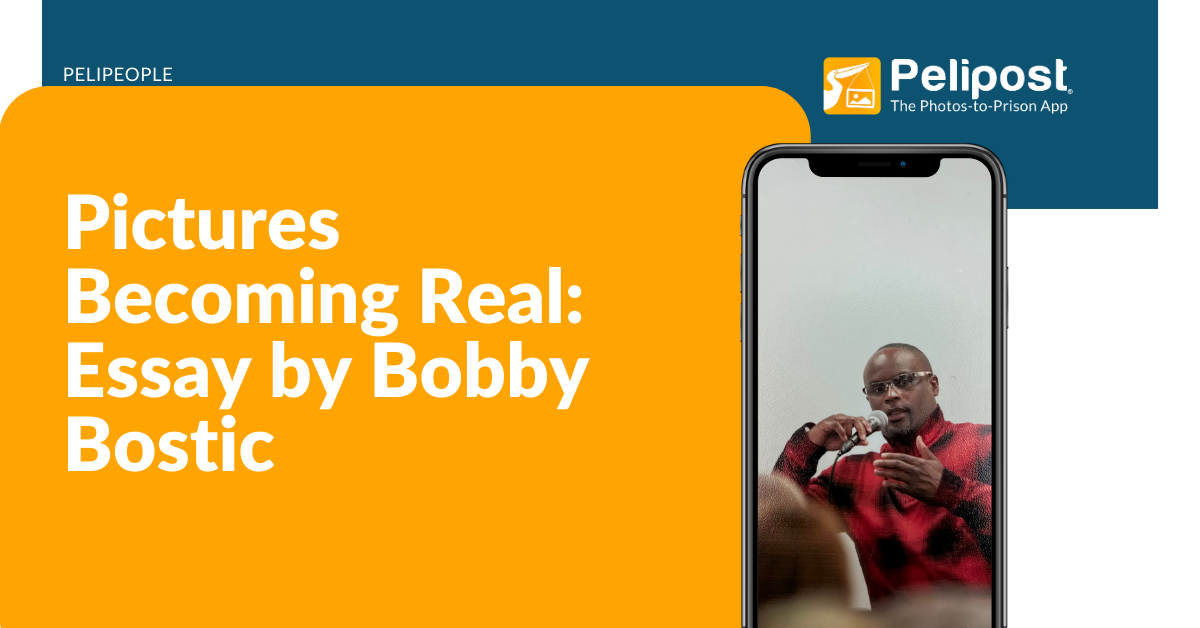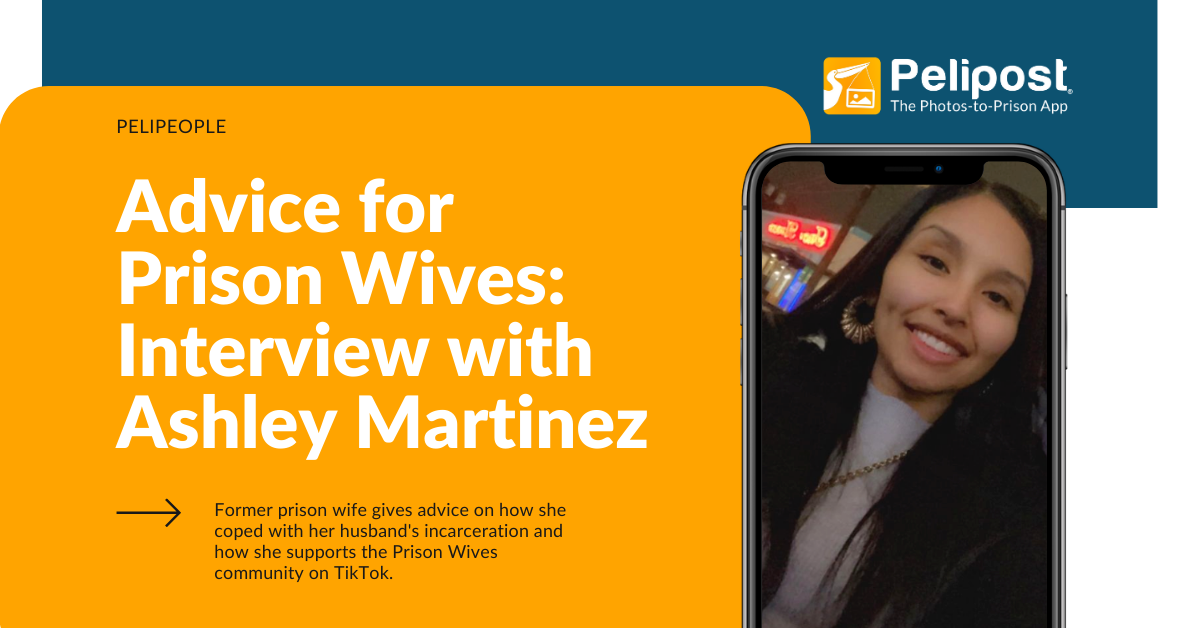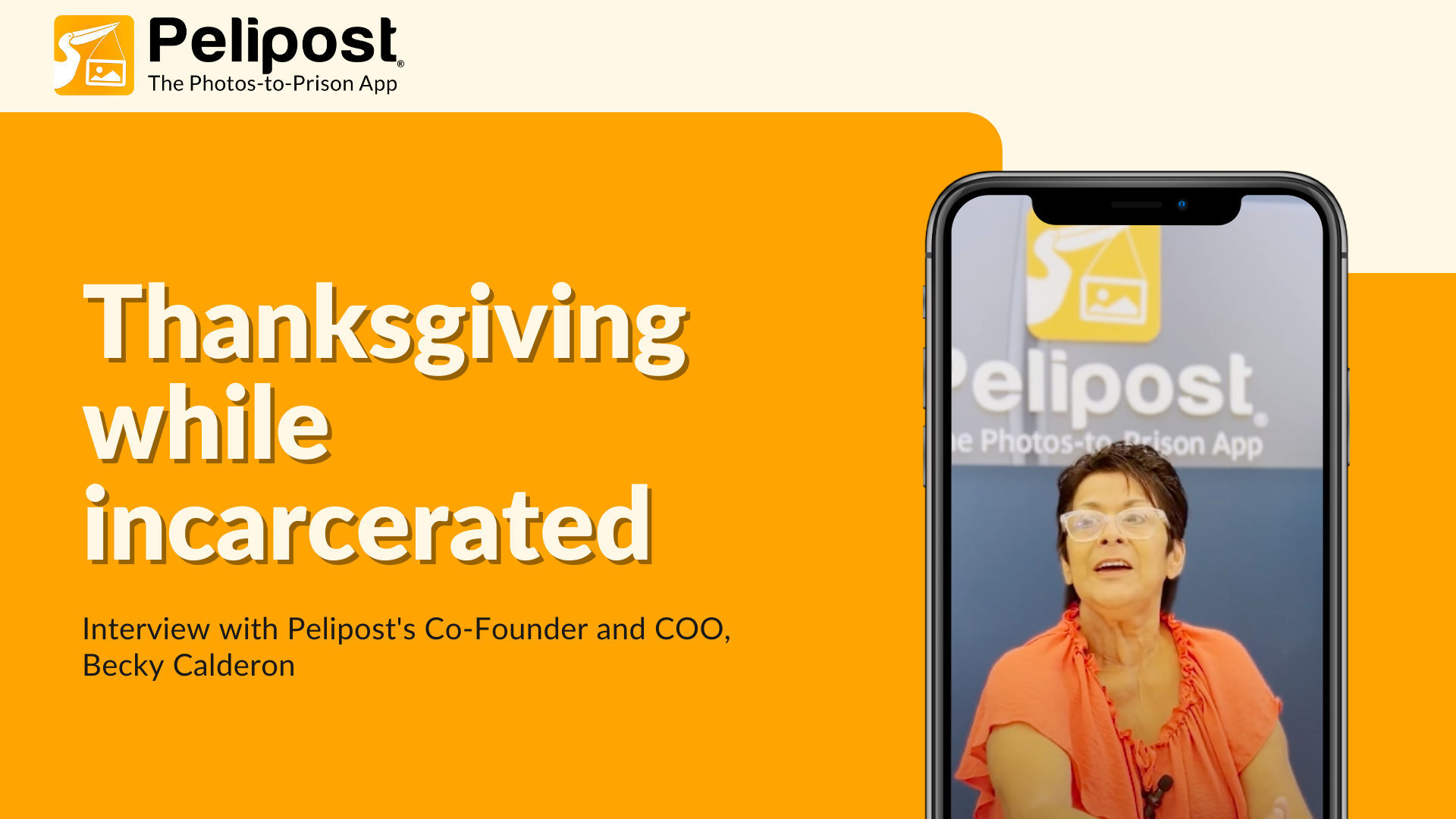A lot has changed since the last time we featured Bobby Bostic’s story on our blog in 2021. Bobby was released on parole in November 2022, after serving 27 years of a 241-year sentence. We are honored to have been part of his life while he was incarcerated, keeping him connected with friends and family on the outside through photos. We celebrate not only his release, but his accomplishments and perseverance. You can learn more about Bobby’s story and his current projects at his website here.
It’s our pleasure to once again feature Bobby’s personal incarceration story in his own words as he reflects on the true impact of sending photos to someone in jail or prison.
A few years ago while serving a 241-year sentence, I started using Pelipost to receive pictures of my loved ones. While I served 27 years in prison, I only had photos to imagine the streets. Pictures highlighted what I was missing and served as my lens to the streets. I went to prison in 1995 when I was just 16 years old. Pictures served as my lifeline to the streets. I was released 4 months ago and now I am 44 years old.
While I was in prison, not everyone could come and see me. Pictures were the only way I could see them. I had nothing but childhood memories, but the pictures made everything real to me. I want to thank Pelipost for its wonderful service of helping prisoners like me to be able to get visuals of the free world. Words can’t express how much prison separates us from the streets.
On the other hand, words cannot express how valuable Pelipost is to prisoners. Pictures are so valuable to us in prison. In my book Time: Endless Moments in Prison, I wrote an entire chapter on pictures: ‘Pictures in Prison.’ I encourage everyone to please read this book if you want to know the value of pictures inside of prison and why a service like Pelipost is so valuable to prisoners.
While inside of a cell, pictures are like 3D for us. Pictures are alive and full of life. On a personal level I wrote about this in my soon-to-be-released autobiography ‘Humbled to the Dust: Still I Rise.’ In the meantime to find out more about my story, just Google ‘Bobby Bostic’ or follow @freebobbybostic on Instagram and Twitter. Check out some of my art, and my books on Amazon.
Pictures are not motionless in prison. Pictures are our motion picture to the free world.
Bobby Bostic
Pictures are real to prisoners. They are real life to us. They capture moments in time for us to see that which we could not otherwise see. We thank you Pelipost for the service you provide for us prisoners and our friends and family. As my late mom used to say when she mailed me pictures to prison: “A picture is worth a thousand words.”
Pelipost, a picture is worth a thousand words, and in a prison cell a picture speaks a thousand words to us over the many years that we keep those pictures while looking at them dozens of times in our cell. Pictures are not motionless in prison. Pictures are our motion picture to the free world. We hold the visual in our hands, and as we sit in the cell: pictures become real.




